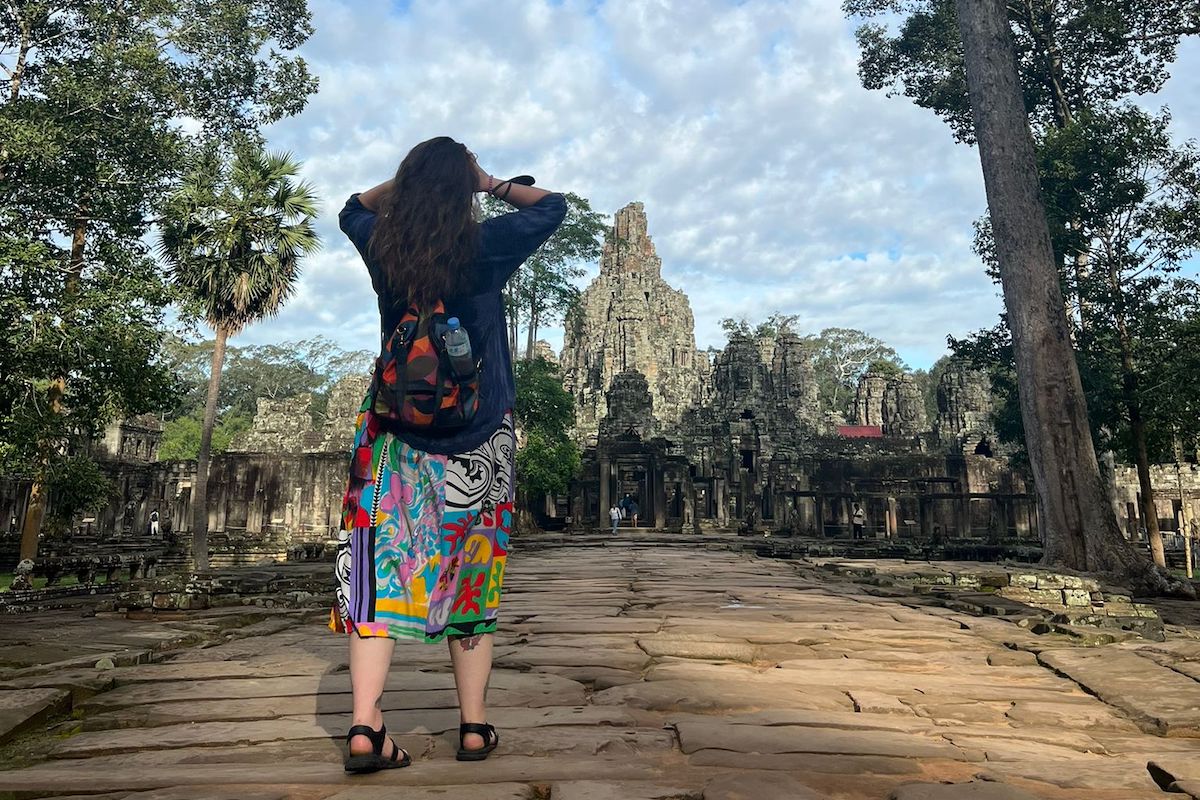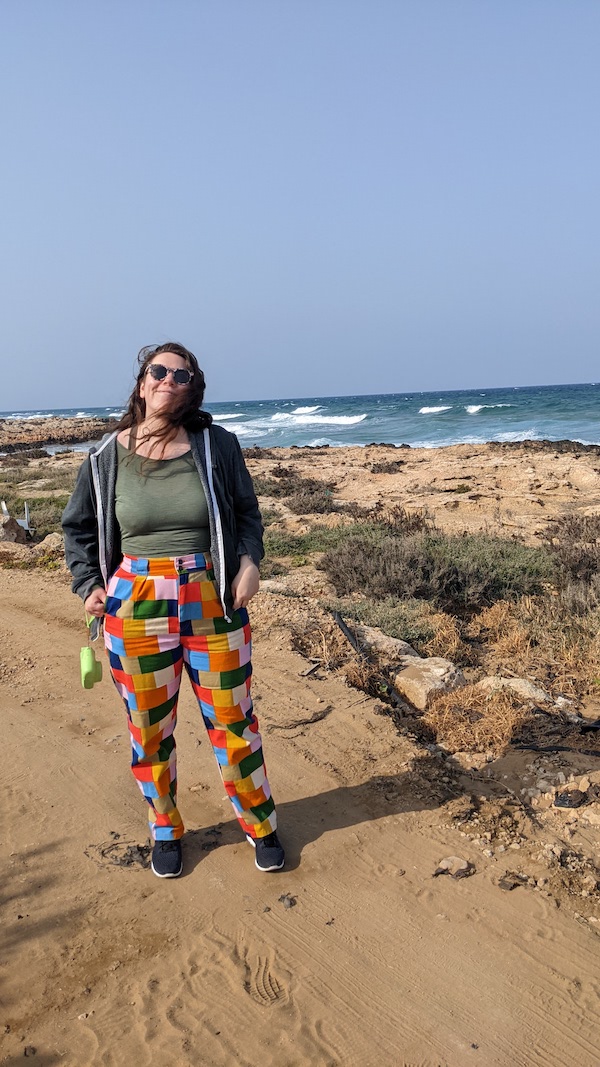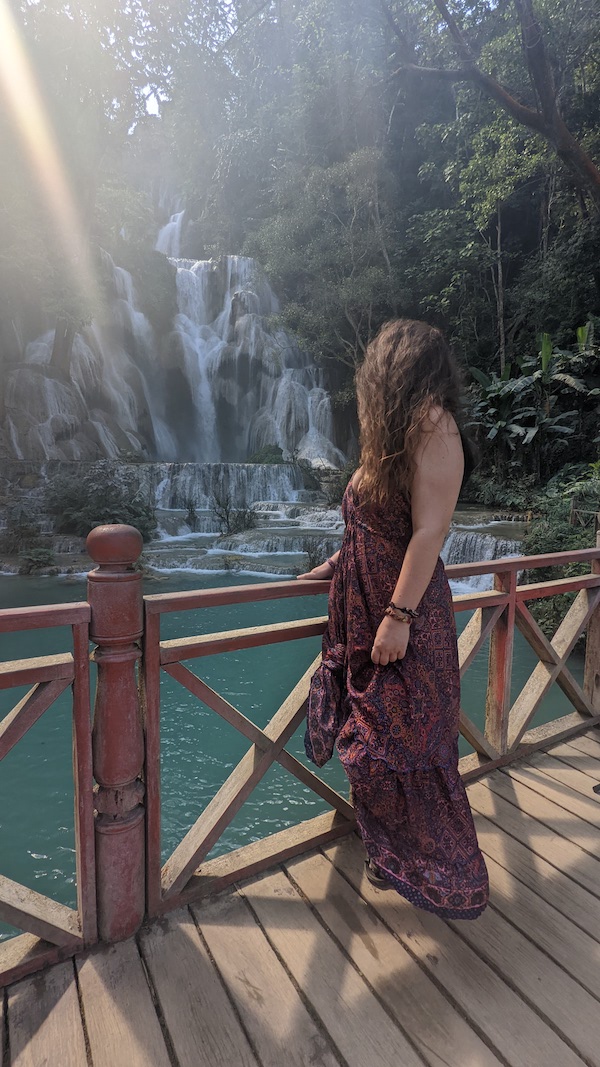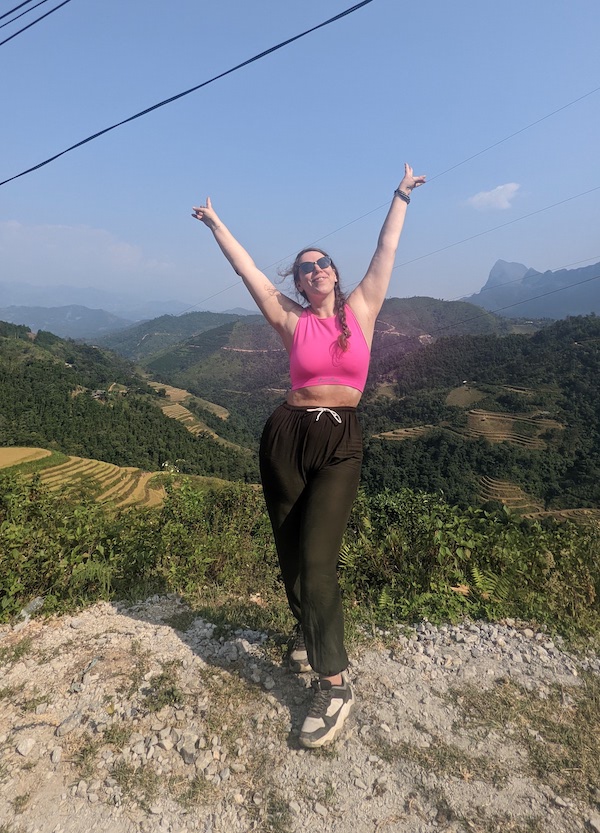
Travelling Full-Time Is A Joy, But I Never Anticipated Its Impact On Body Image
Skip to Section
Before departing England to become a digital nomad, my body confidence was at an all-time high.
As a teenager, I developed a distorted relationship with food, bouncing between starvation, binge eating and vomiting, with over-exercising dominating my daily routine. Until my early 20s, I tore my body to shreds every second of the day, hating every scrap of skin.
After discovering the body neutrality and acceptance movements and accessing counseling, I threw off the trappings of diet culture and embraced my body. I still had hang-ups, as we all do, but my self-confidence was stronger and fiercer than ever before. I never anticipated that traveling full-time in South East Asia would threaten that.
Setting off in April 2022, my travel journey began in Bangkok, Thailand, where body image was the furthest thing from my mind. Traversing sprawling food markets and navigating the winding streets took up all of my energy, with no time for self-esteem issues as my partner and I figured out how to live this new life.

The only thing that encroached on this time of exploration was the realization that my body type is a curiosity in South East Asia. I am a 177cm tall, curvy woman—the complete opposite of most body types on this continent.
While the stares were unavoidable, they did not invade my psyche in a significant way. I accepted that as a foreigner, this would be part of my experience. Instead, I felt free to explore the magnificent city, and body image became a low priority. I saw no need to expend energy on protecting it because I did not think it was under threat.
After ticking off everything on our tourist list in Bangkok, we boarded an overnight train to Koh Phangan, an island in the south of Thailand. Naturally, as an island, Koh Phangan is littered with stunning beaches, which I wanted to visit.
Lost in the excitement, I did not think twice about dancing across the sand in my bikini and diving into the sea, never worrying about my visible scars or wobbly thighs. My first few visits to the beach were uneventful, focused entirely on basking in the glory of living on an island in paradise.
But then the comparison games crept in.
In South East Asia, by some beautiful fluke, the majority of travelers are stereotypically attractive and often slender. I am neither of those things. I have a big butt, cellulite sketched across my thighs, and a starry landscape of scars littering my body from head to toe. I do not consider myself ugly, however, nor have I ever felt effortlessly beautiful.
Suddenly, surrounded by impossibly beautiful people, I started to compare every inch of my body with theirs. I lamented the frizz destroying my hair, glared at the cellulite on my thighs, grasped my far-from-flat stomach, and wished my breasts would revert back to early 20s bounciness.
The effect was initially minimal. I resisted the urge to return to food restriction and exercise with the primary goal of being thin. Reminding myself that my worth is not determined by physicality, I focused on adventuring by shunting my burgeoning insecurities to the back of my mind.
But, in the dark, those feelings festered. My visits to the beach became rarer, and I avoided the mirror more and more. Largely, I carried on without any noticeable effects until I started traveling solo.
Breaking up with my partner a few months into traveling was a lonely experience, and setting off solo was utterly terrifying. While my confidence had never been reliant on their compliments, being without someone who boosted it took a toll.
My first solo trip was to Cambodia, where my body was typically covered in the absence of beaches, so the effects of wavering self-esteem were rarely felt, especially after falling back into single life with abandon.
However, upon my return to Vietnam, where I stayed predominantly in hostels, I found myself surrounded by slender and stunning people. I did not hold a grudge against them for their beauty, but I could feel my own light diminishing in their shadow.
Surrounded by perfect reflections of the beauty standard I had previously invested so much energy in rejecting, the comparison game leveled up, and my self-esteem took a nose dive. Being exposed to the real-world effects of “pretty privilege” also had an impact.
Pretty privilege describes the way that people who are considered attractive based on beauty standards have the upper hand, often experiencing better treatment and being afforded opportunities that regular people may not receive.

I saw it manifest in the way locals interacted with my prettier friends—sometimes giving them more generous prices for goods and services—and outright ignored me. It arose in conversations with other travelers in hostels, as my words seemed to float away unnoticed and prettier friends became the center of attention.
Although it was a shock to witness for the first time, I held no resentment for my beautiful friends; they were blessed by a potluck of genetics, and society’s bias is not their fault. But, the impact on my own body image was crushing.
I sometimes felt irrelevant and, at other times, totally invisible. My old eating disorder brain rose up with a ferocity it had not held since my early teenage years. I avoided eating in front of others, limiting my intake, and criticizing my body at every opportunity. I watched each thigh wobble with disgust, mourned the lack of unscarred skin on my body, and lost myself in self-criticism when looking in the mirror.
Each time I was ignored in favor of a prettier person felt like a stab in the gut. I yearned to be skinner, prettier, and more noticeable, yet I also longed to sink into the background. My insecurity peaked on a night out in Northern Thailand when someone I was attracted to blanked me until right at the end of the pub crawl, after everyone he hit on rejected him. He started to flirt with me, and initially, I fell for it.
I joined his group for the last few stops of the crawl, enjoying the attention and validation until we returned to the hostel, and he tried to initiate sex. I rejected it, partly because the idea of dorm sex makes me want to vomit, but mostly because I was a last resort, not someone he genuinely desired.
While the experience knocked my self-esteem to the bottom of the ladder, I was also proud of my recognition of his toxicity. My worth is not dictated by how attractive other people deem me to be.
Hurtful as it was, this incident was the trigger I needed to start healing my wounded self-esteem. I reflected on the journey my body image has been on throughout my life and realized how significantly traveling had affected it.

I won’t lie and say that these insecurities eclipsed the fun and satisfaction of thriving as a digital nomad. I was and am generally very happy, but the effects of my struggling self-esteem were significant. I felt painfully self-conscious about meeting new people, and questioned people’s motives when they showed any romantic or sexual interest.
Recognizing that I had to stem the spiral before it got out of control, I wrote a letter to my body, exploring our changing relationship over the years. It triggered my healing process anew.
Casting back to my first healing journey, I introduced daily affirmations, such as “I am beautiful” and “I am worthy,” and looked in the mirror daily to pick out a new thing that I liked about the body looking back. For too long, I relied on outside validation to nourish my self-esteem, so this time I knew the focus had to be on growing it from the inside out.
A few months later, I feel at peace in my body again. Things are far from perfect and occasionally, I have to remind myself to stop comparing this curvier body with my nomadic peers. I am learning, though.
My confidence is now built on a more solid foundation and is fed by sourcing most of my confidence from my intelligence, humor and wit, no longer relying on physical beauty to feel like a beautiful person. Now, feeling good about my body is just a happy bonus, not a prerequisite for happiness.
About the Author
Hannah Shewan Stevens is a writer, editor and campaigner. As a disabled, chronically ill queer woman, she specialises in covering the intersection of health, travel, sexuality and LGBTQ+ issues. She is also training to be a sex educator and hopes to use her work to help people confront difficult topics openly and with compassion.
Information published on this website and across our networks can change over time. Stories and recommendations reflect the subjective opinions of our writers. You should consult multiple sources to ensure you have the most current, safe, and correct details for your own research and plans.
Frayed Passport is a participant in the Amazon Associates Program, an affiliate advertising program designed to provide a means for sites to earn advertising fees by advertising and linking to Amazon.com. We also may share links to other affiliates and sponsors in articles across our website.




